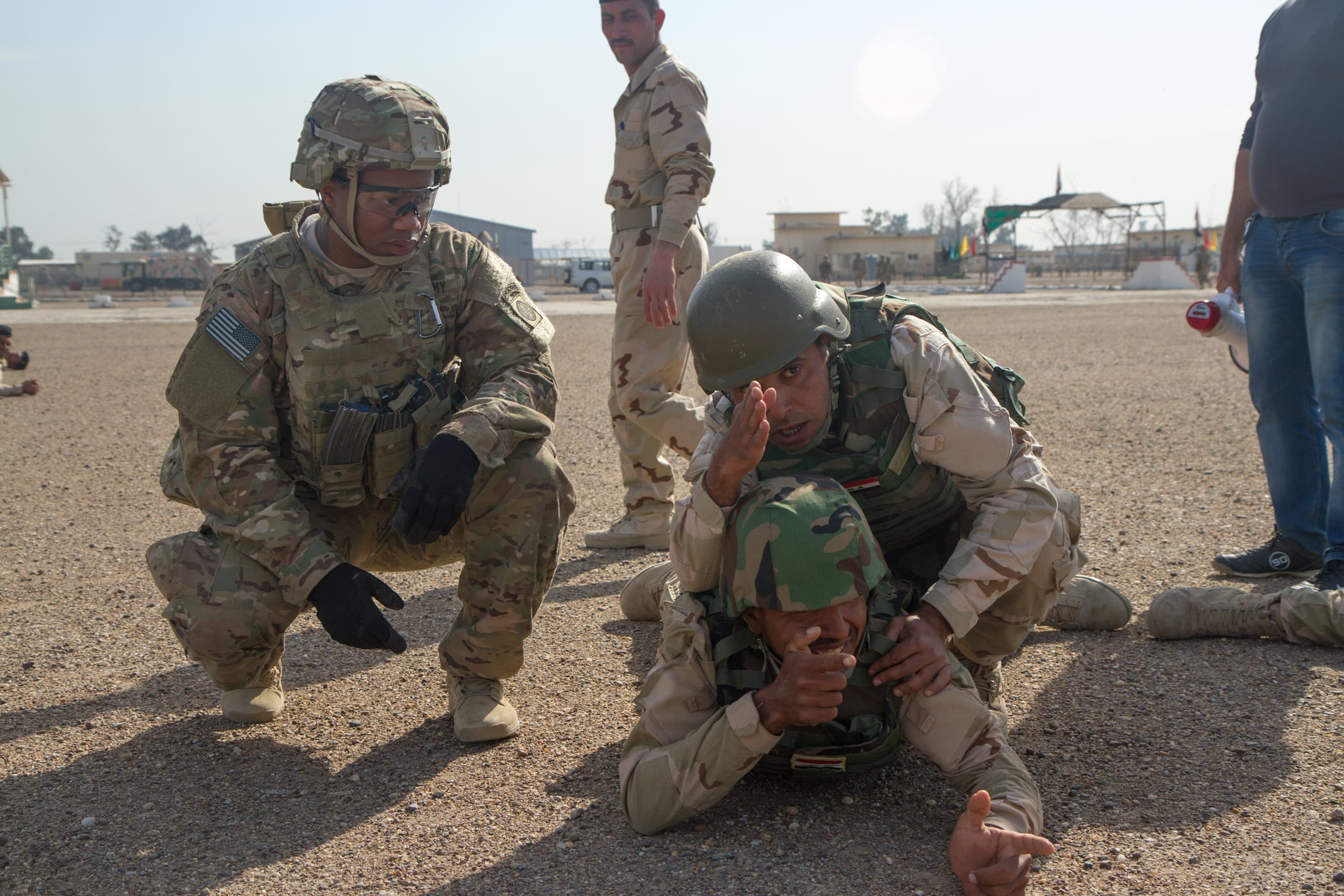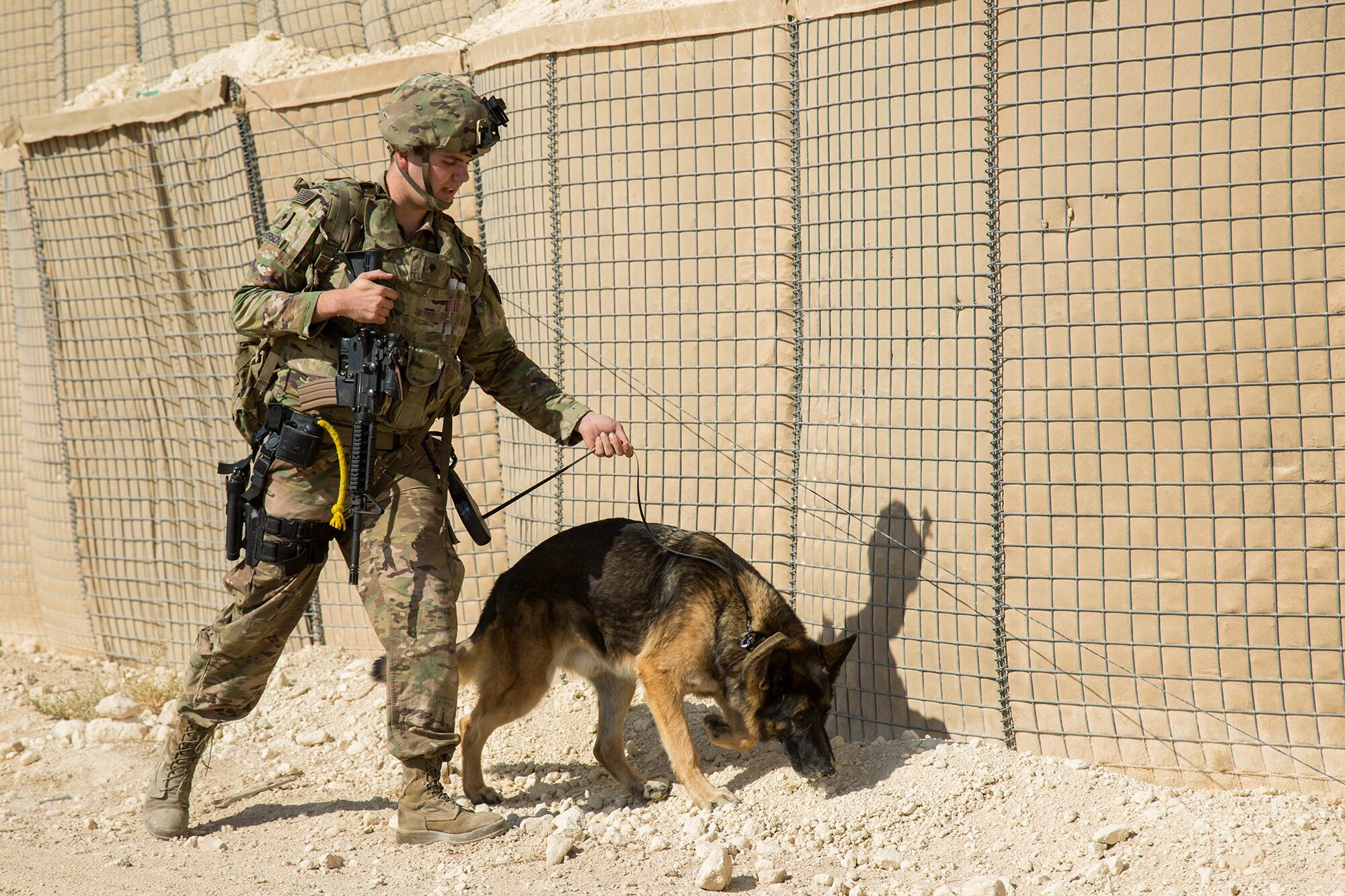At least two American service members suffered traumatic brain injuries as a result of the Saturday attack on al-Asad airbase in Iraq, the Pentagon confirmed on Monday.
The rocket and ballistic missile barrage wounded at least one Iraqi service member, according to a CENTCOM statement released after the attack, while a number of U.S. personnel are being evaluated for traumatic brain injuries, which can take some time to surface after an impact.
“Most of the missiles were intercepted by the base’s air defense systems while others impacted on the base,” the statement said.
The two injured troops have since returned to duty, Pentagon spokeswoman Sabrina Singh told reporters on Monday. Singh did not have a number of troops still being monitored for possible TBI.
Saturday’s attack was somewhat unprecedented in the amount of ordnance launched at al-Asad, Singh said, but she confirmed that militias have used ballistic missiles in attacks before. Singh also declined to say whether the barrage, as it was carried out, represents an escalation of the conflict between U.S. troops and Iran-backed militias in Iraq.
The attack is one of more than 151 launched on bases housing U.S. troops in Iraq and Syria since Oct. 17, shortly after the U.S. sent aircraft carriers, Air Force fighter squadrons and other troops to the Middle East following Hamas’s Oct. 7 attack on Israel.
The number of troops injured service members during that time period has risen to 71, according to numbers shared by the Pentagon as they occurred. Though attacks had steadily continued, before Saturday no troops had been injured since a Dec. 25 attack on al-Asad.
Iraq’s prime minister made headlines earlier this month calling for a drawdown of 2,500 troops who have been rotating into Iraq since late 2021, as part of the latest phase of the mission to defeat ISIS.
RELATED

“There is a need to reorganize this relationship so that it is not a target or justification for any party, internal or foreign, to tamper with stability in Iraq and the region,” Prime Minister Mohammed Shia al-Sudani told Reuters in an interview published Jan. 10.
U.S. troops in Iraq have faced periodic attacks from Iran-backed militias in recent years, but the intensity and frequency has picked up significantly since October.
The U.S. and Iraq announced in August that they would convene a military commission to assess a potential agreement that could change both the numbers of troops in Iraq as well as their mission, which has been to continue degrading ISIS’s capabilities both in Iraq and Syria.
Meghann Myers is the Pentagon bureau chief at Military Times. She covers operations, policy, personnel, leadership and other issues affecting service members.




